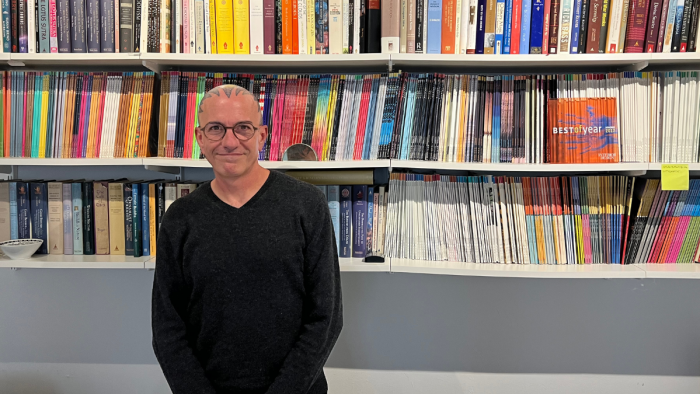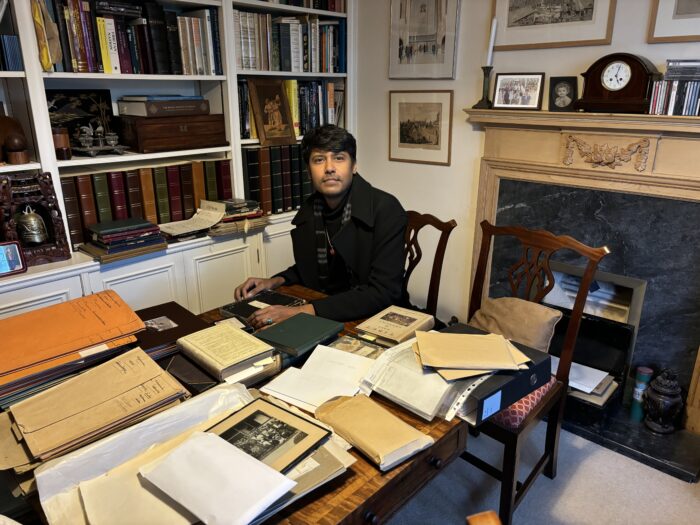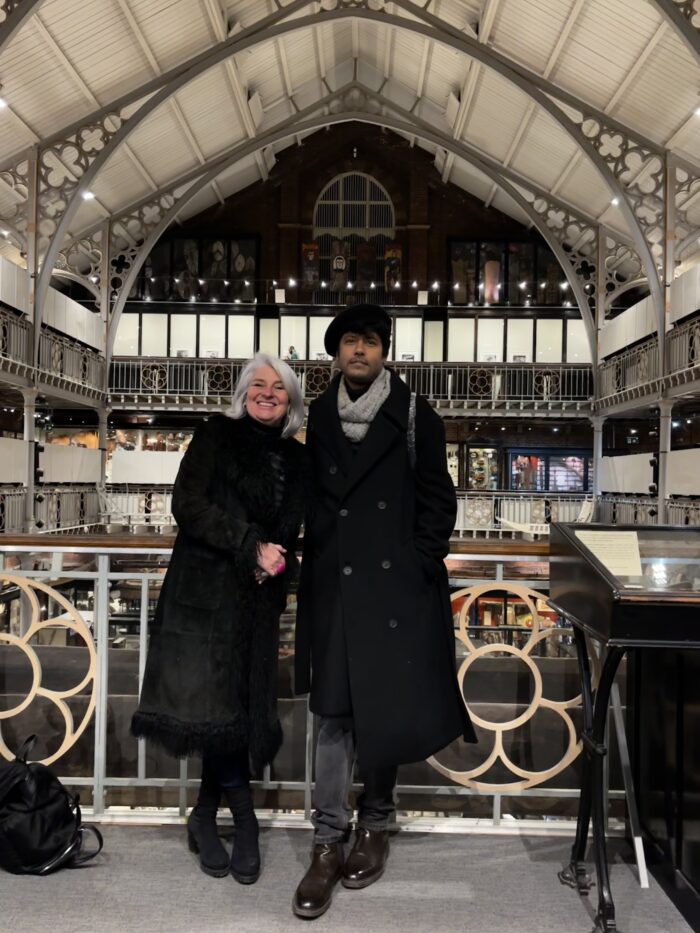


Originally from Kolkata, India, Robert H. N. Ho Family Foundation Early Career Research Fellow in Buddhist Studies Parjanya Sen F’23 became interested in Buddhism in 2012 after traveling to Bodhgaya, an important Buddhist pilgrimage site. This trip prompted Sen to expand his research to the artistic and archaeological Buddhist remains of Pāla-era in West Bengal and Bangladesh.
In 2015, Sen moved to take up a position at a remote rural college in Sonada, Darjeeling. There, he was able to continue his research and encountered a different set of sites that illuminated Bengal’s Buddhist history via Tibet. Sen became particularly connected to the story of Sarat Chandra Das (1849-1917), the Bengali ‘spy’ who travelled to Tibet as a British agent and who created a body of scholarship on the region.
Supervised by Tapati Guha-Thakurta, Professor of History at the Centre for Studies in Social Sciences, Calcutta, Sen’s research and resulting PhD dissertation explored Tibet’s role in fostering a scholarly Buddhist community in colonial Bengal, as part of an effort to recover the region’s religious heritage.
Following his PhD, Sen contemplated how his dissertation could be developed into a book. With guidance from his PhD examiner and mentor, Clare E. Harris, Professor of Anthropology at the University of Oxford, Sen determined that The Robert H. N. Ho Family Foundation Early Career Research Fellowship in Buddhist Studies would provide him with additional research opportunities in archives across the UK to develop a book that would solely focus on Tibet.

The fellowship allows pre-tenure scholars across the globe to spend up to nine months solely concentrating on research and writing for their proposed Buddhist Studies projects. For Sen, this involved researching at the Pitt Rivers Museum collections, the British Library, the Royal Geographical Society archives, the Royal Society of Asian Affairs archives, the National Museums Liverpool, and the University of Glasgow collections.
Sen’s book project addresses a critical gap in the scholarship of Tibetan and Buddhist studies by examining Sarat Chandra Das’s career and his production of scholarship on Tibet. “It will shift the focus from European scholars to native agents and their roles as well as reorient the gaze of Buddhist studies to British Bengal,” he explained.
“It is primarily through Das and his scholarship that Tibet began to serve as a key site for imagining a new nationalist Bengali history and the recovery of a lost Buddhist past,” Sen said.
It is important to bridge the scholarly gap, as well as the gap that exists in terms of access to resources, networks, and archives between academic communities in the Global North and the Global South. Parjanya Sen F’23Robert H. N. Ho Family Foundation Early Career Research Fellow in Buddhist Studies
By illuminating Das’s role in Tibetan knowledge-production, Sen wishes to underscore the importance of native Tibetan and Sikkimese peoples who helped build the scholarship that can be used to frame a new nationalist history of Bengal today.
Sen also attended the 2024 Buddhist Studies Retreat hosted by ACLS and El Colegio de México, A.C. in Mexico City, which gave him the opportunity to receive critical feedback during the writing stage of his book’s development. Over the course of five days, he discussed his own work while learning about other research projects in the fields of Buddhology, Tibetology, and anthropology. Sen remains grateful for this opportunity and the validation of his research.
Now an assistant professor at Deshbandhu College for Girls, Sen attributes the vitality of his career and the new direction of his book to the input and support he received from ACLS. He specifically credits comments from Professor Donald S. Lopez, Jr., Senior Advisor to The Robert H. N. Ho Family Foundation Program in Buddhist Studies, as insightful and constructive for his career and the development of his book manuscript.
“I would like to thank the ACLS and The Robert H. N. Ho Family Foundation for selecting a scholar whose work and training is almost entirely based out of South Asia,” Send said. “I think it is important to bridge the scholarly gap, as well as the gap that exists in terms of access to resources, networks, and archives between academic communities in the Global North and the Global South.”
Launched in 2014, the Program in Buddhist Studies, administered by the American Council of Learned Societies, promotes the academic study of Buddhism, strengthens international networks of Buddhist Studies scholars, and increases the visibility of new knowledge and research on Buddhist traditions.